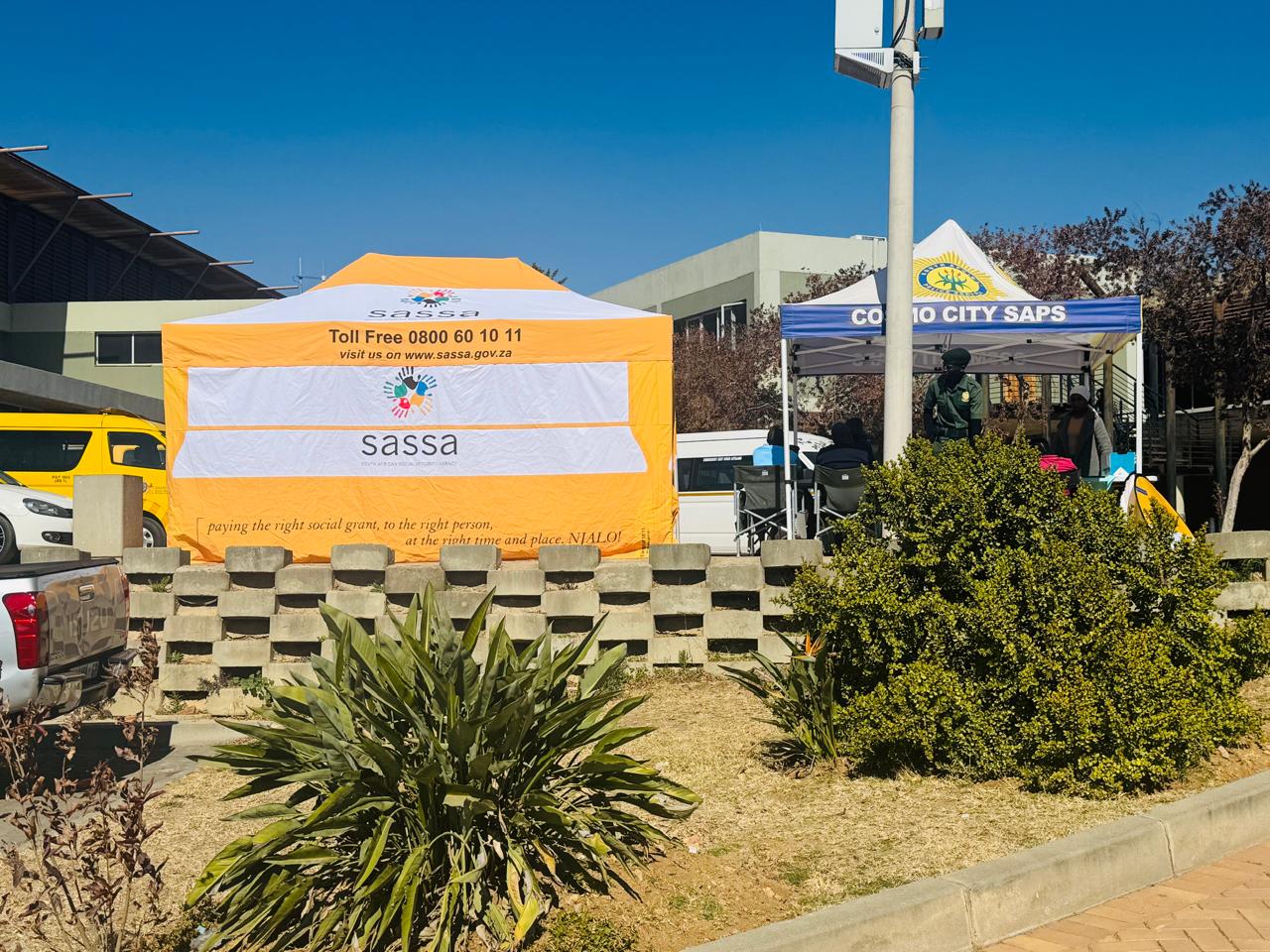SASSA grant: What the law says about income disclosure how this affects beneficiaries

SASSA cites Section 14(5): What beneficiaries must report or risk losing grants. Photo credit: SASSA via X.
The South African Social Security Agency (SASSA) plays a critical role in delivering social assistance to millions of vulnerable citizens. To maintain the integrity and fairness of this support system, the Social Assistance Act (No. 13 of 2004) provides a clear legal framework.
One of the most vital components of this law is Section 14(5), which places specific responsibilities on grant beneficiaries. This section ensures that beneficiaries are transparent about any significant life changes that could affect their eligibility or payment structure.
The importance of Section 14(5) came to the fore once again during SASSA’s media briefing held earlier today, where SASSA CEO Themba Matlou cited the provision in response to ongoing complaints and confusion from beneficiaries. Given its relevance, it is important to understand what Section 14(5) entails and how it affects grant recipients. This article breaks down the section and what it means for those who rely on SASSA support.
"Section 14(5) of the Social Assistance Act requires beneficiaries to notify SASSA of any material change in their circumstances, including financial, marital as soon as reasonably possible. This obligation is also stated in the approval letter each beneficiary receives."- Themba…
— SASSA (@OfficialSASSA) July 14, 2025
Section 14(5) of the Social Assistance Act Explained
Section 14(5) of the Act states:
“If any information supplied by a beneficiary to the Agency in an application for a grant materially changes after that beneficiary has submitted that application, he or she must as soon as is reasonably possible after that change occurs, inform the Agency thereof.”
In simple terms, this means if your personal or financial situation changes after you’ve applied for a grant, and that change could influence your eligibility or the amount you’re entitled to, you are legally required to inform SASSA without delay.
READ ALSO
What Is a Material Change?
A material change refers to any development that may significantly affect your grant qualification. Examples include getting a new job or income source, moving to a new address, a change in marital status, death or birth in the household, or starting to receive another form of state support or pension. These changes are important because they can alter your financial situation, which is the primary factor in determining eligibility for means-tested social assistance.
Why Prompt Reporting Matters
The Act uses the phrase “as soon as is reasonably possible,” which indicates that there should be no unnecessary delay in updating SASSA about your situation. If you wait too long or fail to report the changes entirely, you risk facing serious consequences. This legal obligation ensures the social assistance system is not abused and remains available to those who genuinely need it.
Consequences of Not Reporting Changes
Failing to comply with Section 14(5) can have severe repercussions. According to Section 21(3) of the Act, knowingly withholding such information is considered an offence. Penalties may include the suspension or termination of your grant, an obligation to repay overpaid funds, and potential legal action or criminal charges. For example, if someone continues to receive a child support grant after their child has moved out of their care, SASSA can demand repayment and press charges for fraud.
Common Scenarios That Require Reporting
Real-life situations that fall under Section 14(5) include a beneficiary securing employment and earning more than the allowable income threshold. If not reported, the grant may continue based on outdated information, leading to overpayment. Another example is relocation—changing your address might affect the regional office responsible for processing your grant. Household composition also matters. If a dependent passes away or a new child is born, SASSA needs to be informed to reassess the household’s eligibility.

Maintaining Fairness and Sustainability in the System
Section 14(5) upholds the principle of fairness by ensuring that all beneficiaries are treated equally and grants are distributed based on accurate, up-to-date information. It prevents the misuse of funds and helps maintain public trust in the grant system. When beneficiaries report changes promptly, it supports the sustainability of SASSA’s operations and ensures resources are not wasted.
How SASSA Should Respond to Updates
In addition to beneficiary responsibilities, SASSA also has an obligation to act appropriately when a material change is reported. They must assess the new information fairly and inform the beneficiary in writing if any changes to the grant status occur. Beneficiaries must also be informed of their right to appeal under Section 18 of the Act if they disagree with the decision. This ensures transparency and due process.
READ ALSO:
SASSA clarifies payment review process: What beneficiaries need to know
Why SASSA is freezing some grants — and why people
SASSA reveals how it flagged over 210,000 grant beneficiaries, gives reason
SASSA breaks silence on delayed grants, releases date to address negative criticisms, others
How to Comply with Section 14(5)
To stay compliant, beneficiaries should maintain records of any major life changes. Always notify SASSA in writing or via official channels such as online portals, physical offices, or designated call centers. Make sure to ask for confirmation of receipt. If possible, keep copies of submitted documents. This proactive approach can prevent disputes and prove that you fulfilled your legal responsibility.
Beneficiaries’ Rights Under the Act
It’s important to note that while Section 14(5) places responsibilities on beneficiaries, it does not strip them of their rights. If SASSA makes a decision based on reported changes that a beneficiary believes is unfair or incorrect, they have the right to request a reconsideration or file an appeal through the Independent Tribunal as outlined in Section 18. SASSA is obligated to inform beneficiaries of these rights.
Balanced System Requires Responsible Action
Section 14(5) is not just a legal requirement—it is a mechanism to protect the integrity of South Africa’s social assistance system. It promotes accountability among beneficiaries and ensures that grants reach those who genuinely need them. By reporting material changes promptly and staying informed about their rights and duties, beneficiaries help create a more effective, fair, and sustainable welfare system. In turn, SASSA must continue to educate, communicate, and support grant recipients to maintain this balance.

